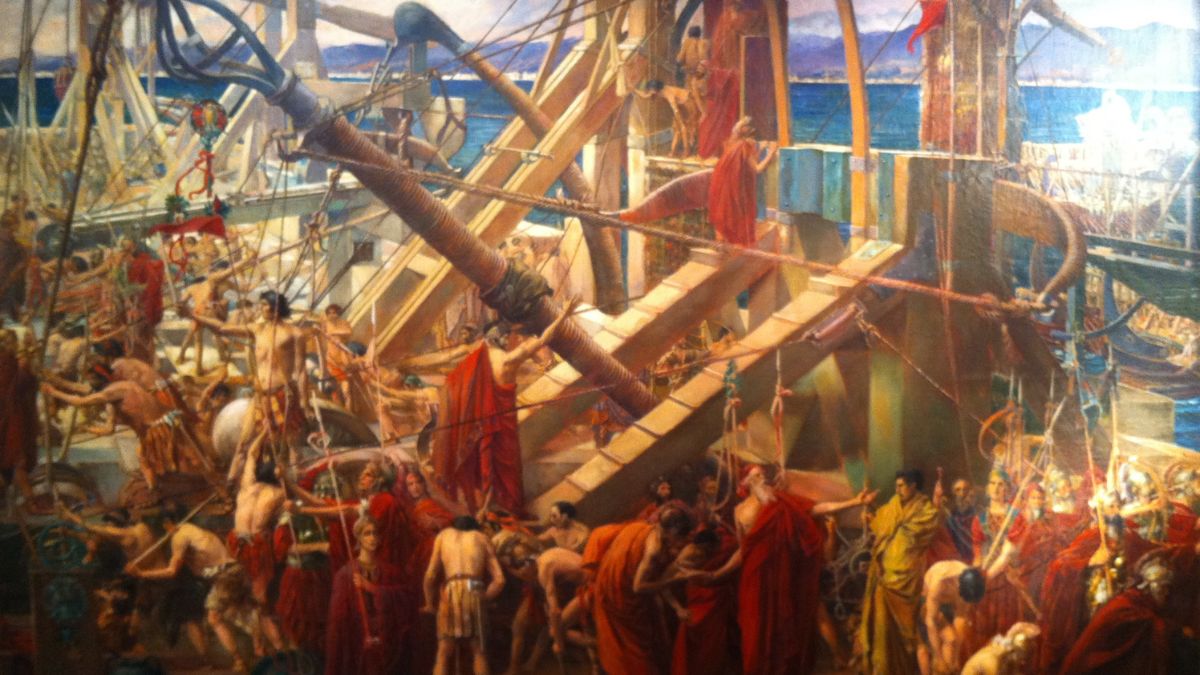Archimedes left an indelible mark on history with his pioneering contributions across diverse fields of science, mathematics, and engineering. His profound intellect and innovative spirit continue to inspire and influence scientific thought to this day. Delve deeper into the life and achievements of this exceptional polymath.
Early Life and Brilliance
Archimedes was born in 287 BC in Syracuse, Italy, displaying an insatiable curiosity for the natural world from an early age. His upbringing in Syracuse, a Greek colony, laid the foundation for his future scientific endeavors.
Contributions to Mathematics and Geometry
His treatise “On the Sphere and Cylinder” revolutionized geometry, serving as a cornerstone for the study of three-dimensional shapes. Archimedes’ pursuit of precision led to his calculation of an accurate approximation of pi (π), showcasing his mastery in mathematical principles.
Principle of Buoyancy and Eureka Moment
Legend has it that while immersed in a bath, Archimedes discovered the principle of buoyancy. His sudden insight led to the realization of using water displacement to measure the volume of irregularly shaped objects, famously exclaimed as “Eureka!”

Engineering Marvels and Inventions
Archimedes’ inventive mind extended beyond theory into practical applications. He designed the Archimedes’ screw, a device integral in raising water from lower to higher levels, proving indispensable in irrigation systems.
War Machines and Strategic Brilliance
During the Roman siege of Syracuse, Archimedes showcased his ingenuity by creating advanced war machines and fortifications. His inventive prowess and understanding of mechanics played a pivotal role in defending the city.
Legacy and Influence Across Disciplines
Archimedes’ influence extends far beyond his own time. His contributions to calculus, particularly in calculating areas and volumes, laid the groundwork for future developments in the field. His legacy persists in the foundational principles of integral calculus.
Astronomical Observations and Impact on Astronomy
Beyond mathematics and engineering, Archimedes made noteworthy contributions to astronomy. His methodologies for estimating celestial distances and making astronomical observations furthered the understanding of the cosmos.
Impact on Lever and Fulcrum Principle
He articulated the fundamental principle of the lever: “Give me a place to stand, and I shall move the Earth,” illustrating the concept of leverage, which remains a fundamental principle in mechanics.

Influence on Ancient Greek Science and Culture
Archimedes’ intellect and discoveries profoundly impacted the scientific and cultural landscape of ancient Greece, earning him immense respect and reverence among his contemporaries.
Enduring Influence and Reverence
The impact of Archimedes’ brilliance continues to reverberate through centuries, inspiring subsequent generations of scientists, mathematicians, and innovators. His intellectual legacy remains an integral part of the scientific canon, shaping modern scientific inquiry and advancements.
Archimedes’ legacy is not merely a testament to his extraordinary intellect but also to the enduring impact of human curiosity, innovation, and the pursuit of knowledge. His life and achievements stand as a testament to the boundless potential of the human mind to unravel the mysteries of the universe.










